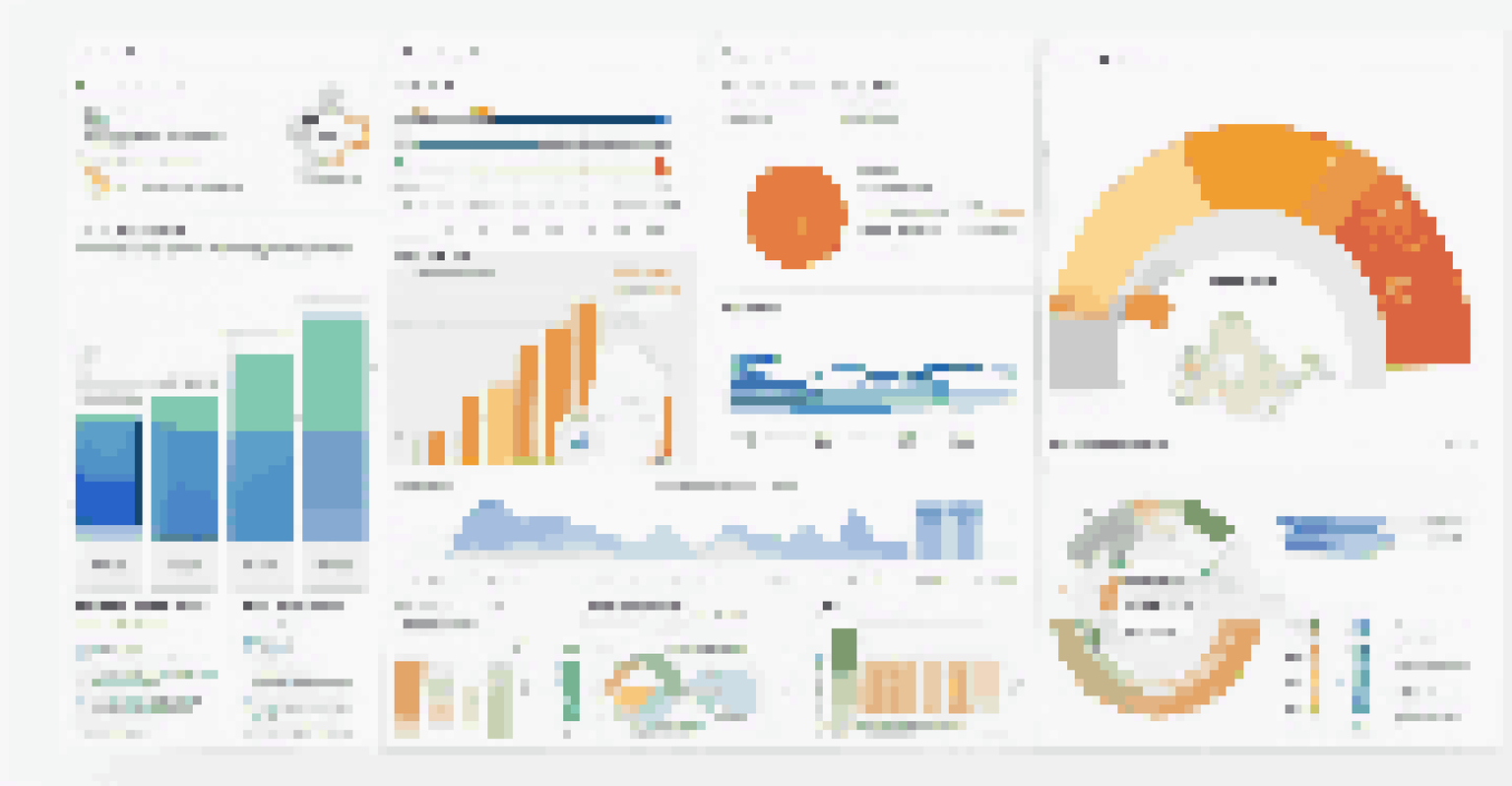Harnessing the Power of Data Analytics for Startups

Understanding Data Analytics and Its Importance
Data analytics is the process of examining data sets to draw conclusions about the information they contain. For startups, this means converting raw data into actionable insights that can guide business decisions. It's like having a compass in uncharted waters, helping you navigate toward success amidst uncertainty.
Without data, you're just another person with an opinion.
In today's digital age, data is generated at an unprecedented rate. Startups can tap into this vast resource to understand market trends, customer preferences, and operational efficiencies. Think of it as having a microscope that reveals details you wouldn’t see otherwise, helping you make informed choices.
By embracing data analytics, startups can identify opportunities for growth, optimize their operations, and enhance customer experiences. This approach not only fosters innovation but also positions startups competitively in their respective markets.
Key Data Analytics Tools for Startups
There are numerous data analytics tools available, tailored to meet the diverse needs of startups. Popular options like Google Analytics, Tableau, and Mixpanel offer user-friendly interfaces and powerful features that can be harnessed without a data science background. It’s like choosing the right toolbox for your DIY project—having the right tools makes all the difference.

These tools can help startups track user behavior, visualize data, and generate reports that inform strategy. For example, Google Analytics provides insights into website traffic and user demographics, enabling startups to tailor their marketing efforts effectively. Just imagine having a detailed map of your audience to guide your marketing journey.
Data Analytics Guides Decisions
Data analytics transforms raw information into actionable insights, guiding startups in their business strategies.
Selecting the right tools is vital for efficiency and effectiveness. Startups should consider factors such as ease of use, scalability, and integration capabilities when evaluating their options. A well-chosen tool can empower your team to focus on what truly matters: making data-driven decisions.
Collecting the Right Data for Analysis
Collecting data is more than just gathering numbers; it’s about capturing information that holds value for your startup. Start by identifying key performance indicators (KPIs) that align with your business goals, such as customer acquisition costs or conversion rates. This is akin to choosing which ingredients to gather before cooking a meal—you need the right components to create a delicious dish.
In God we trust; all others bring data.
Once you know what data to collect, leverage various channels such as surveys, social media, and customer interactions to gather insights. For instance, customer feedback can provide invaluable information about product improvements or new features. It’s like having a direct line to your customers’ thoughts, helping you refine your offerings.
Remember, quality over quantity matters. Focus on collecting relevant, high-quality data that can provide actionable insights rather than drowning in irrelevant information. This approach ensures that your analysis is both meaningful and effective.
Interpreting Data Effectively
Interpreting data is where the magic happens. It’s not enough to just collect data; you need to analyze it to extract valuable insights. Think of data interpretation as piecing together a puzzle—you need to see the big picture to understand how each piece fits.
Start by looking for patterns or trends in your data that can inform your strategies. For example, if you notice a consistent drop in user engagement after a specific update, it might indicate that the change didn’t resonate well with your audience. This insight can help you make necessary adjustments promptly.
Choose the Right Tools
Selecting user-friendly data analytics tools enables startups to effectively track performance and drive growth.
Additionally, involving your team in the analysis process can lead to diverse perspectives and richer discussions. Collaborating on data interpretation fosters a culture of data-driven decision-making, ensuring that everyone on the team is aligned and informed.
Creating Data-Driven Strategies
With insights in hand, startups can craft strategies that are informed by data rather than guesswork. For instance, if analytics reveal a high conversion rate for a particular marketing campaign, you might decide to allocate more resources toward it. It’s like steering a ship in the direction of favorable winds—data helps you navigate toward success.
Moreover, data-driven strategies can enhance customer experiences by personalizing interactions. If you understand what products resonate with your customers, you can tailor your marketing efforts to better meet their needs. This personalized approach can significantly boost customer loyalty and satisfaction.
Ultimately, the goal is to create a feedback loop where data continually informs strategy, and strategy informs data collection. This iterative process ensures that your startup remains agile and responsive to market changes.
Overcoming Data Analytics Challenges
While the benefits of data analytics are clear, startups may face challenges in its implementation. Common hurdles include data quality issues, lack of expertise, and the overwhelming amount of information available. It’s like trying to drink from a fire hose—too much data can lead to confusion rather than clarity.
To combat these challenges, startups can prioritize data quality by establishing clear protocols for data collection and management. Investing in training for team members can also bridge the knowledge gap and foster a culture of data literacy. Just like learning a new skill, practice makes perfect, and the more familiar your team is with data, the more effective they’ll be.
Embrace Data-Driven Strategies
Utilizing data insights allows startups to create informed strategies that enhance customer experiences and improve decision-making.
Additionally, consider starting small. Focus on specific areas where data analytics can have an immediate impact and gradually expand your efforts. This approach allows for manageable growth and helps build confidence in using data effectively.
The Future of Data Analytics for Startups
As technology continues to evolve, the future of data analytics holds immense potential for startups. With advancements in artificial intelligence and machine learning, startups can unlock deeper insights from their data. It's like upgrading from a bicycle to a high-speed train—suddenly, your ability to process and analyze data accelerates significantly.
Emerging trends such as predictive analytics can help startups anticipate customer behavior and market changes. This proactive approach can empower startups to stay ahead of the competition and seize opportunities as they arise. Imagine being able to forecast customer needs before they even express them!

In conclusion, the integration of data analytics into the startup ecosystem is not just a trend; it's a necessity for future success. By harnessing the power of data, startups can drive innovation, make informed decisions, and ultimately thrive in an ever-evolving landscape.